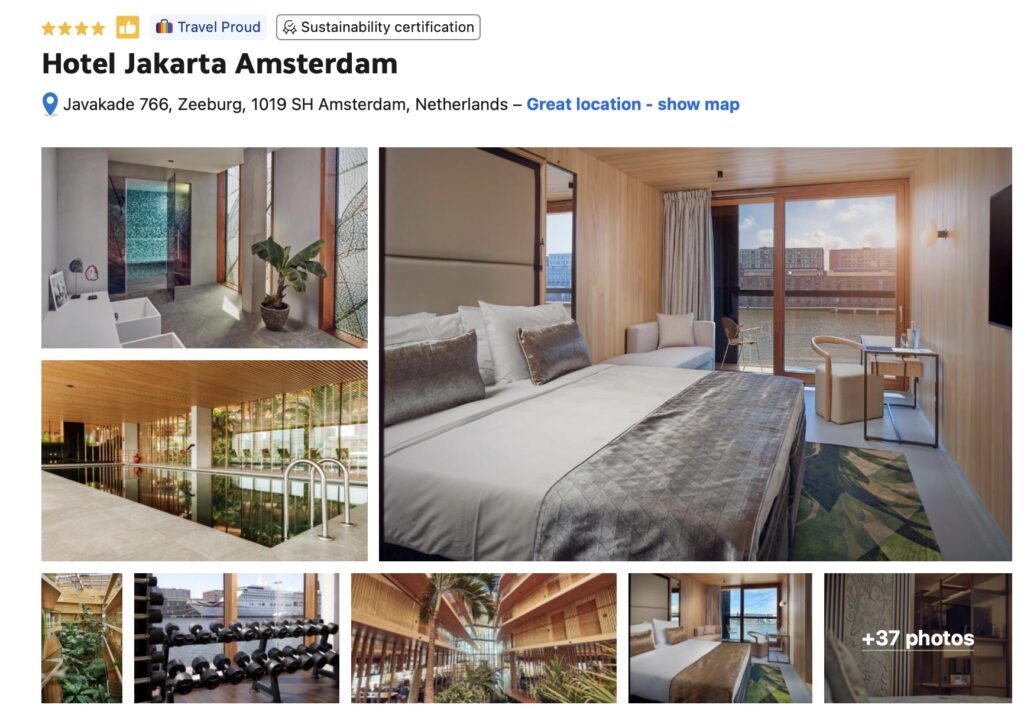Booking.com to Guide Hotels Toward Third-Party Sustainability Certifications
Skift Take
Booking.com modified its sustainability program and will now help hotel partners obtain third-party sustainability certifications.
With certification costs a key concern for partners, including Europe's many independent hotels, the online travel company announced Monday that it would share information on organizations that provide funding and discounts for sustainability certifications. These costs might range from $100 to several thousand dollars annually.
Through a partnership with BeCause, properties and certification providers will be able to share data at scale, Booking.com said. There are dozens of sustainability providers in the market these days, but Booking.com will be pointing hotels to a subset, including Sustonica, Green Key Global, and EU Eco Label.
Hotels will also be sent tips on obtaining certifications based on things such as their property types and locations.
Booking.com's new approach toward hotel sustainability certifications is in the testing phase.
"So what this allows us to do is test how we can best support our accommodations," Danielle D'Silva, Booking.com's director of sustainability, told Skift. "Because what we know today is what they tell us is the barrier, but we need to actually see which are the levers that we can work on with them. What's the role that we as Booking.com can play to support them, to be most impactful in getting accommodations to get certified. So is it the education? Is it just the awareness? Is it the funding? Is it a sweet combination of the three?"
Certification Displays and Filters to Find Them
Booking.com's sustainability features, which are targeted at both travelers and accommodations partners, are part of a reboot that began in March. At that time, the company discontinued aspects of its Travel Sustainable program, launched in 2021, after criticism from Dutch regulators that it was "possibly misleading." Booking.com's sustainability program doesn't have a name.
In March, Booking.com stopped using green leafy badges and a sustainability scoring system in listings, and opted instead to show that a property has third-party certifications. It also added the ability for travelers to filter their searches so they could find these properties.
Today, some 18,000 properties display that they have one or more sustainability certifications like this one shown at the top of a listing for the Hotel Jakarta in Amsterdam. That 18,000 is a fraction of the 475,000 total properties that Booking had in 2023, the latest reported figure, and the company hopes to greatly increase the number of certified sustainable hotels on its platform.

If you scroll down the listing below the availability and room rate information, the listing says the property is certified by Green Key. There's not much other detail.
A global survey commissioned by Booking.com in February found that 45% of travelers viewed properties designated as more sustainable "increasingly appealing," the company said.
But what will travelers make of certifications from disparate certification vendors on Booking.com?
"That's something the industry overall needs to address because there are so many certifications available in travel and tourism today," D'Silva said. "We need to have consistent certifications across the industry."
Clarification: We made several changes to show the new features are an evolution of Booking.com's sustainability program, and not a new program.
Skift’s in-depth reporting on climate issues is made possible through the financial support of Intrepid Travel. This backing allows Skift to bring you high-quality journalism on one of the most important topics facing our planet today. Intrepid is not involved in any decisions made by Skift’s editorial team.





